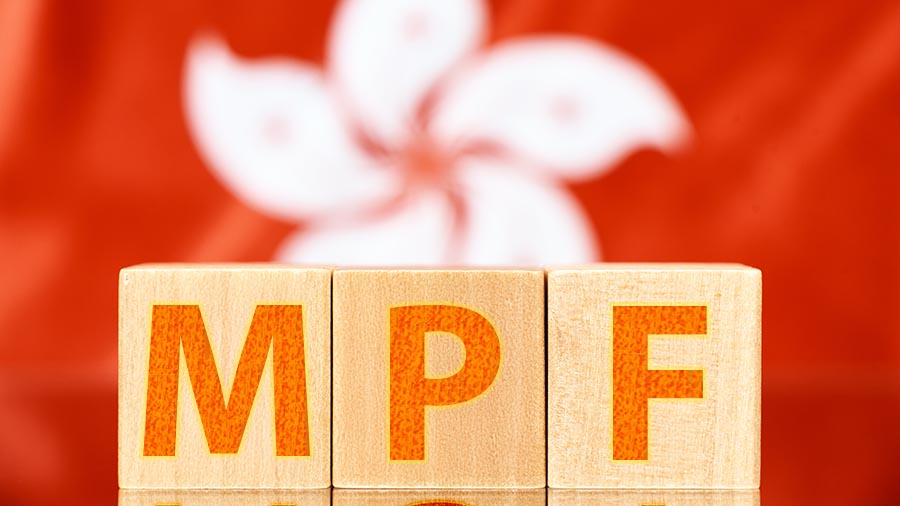Xi Set To Meet Putin In Moscow, Talk To Zelensky: What Are The Potential Outcomes?
By Chris Devonshire-Ellis
Latest Update (March 17, 2023): China’s President Xi Jinping has now been confirmed as visiting Moscow to meet with Russian President Vladimir Putin from Monday 20 to Wednesday, March 22.
Preparations are apparently being made for Chinese President Xi Jinping to visit Moscow, possibly as early as this coming Monday (March 20) after China released a ’12 Point Peace Plan’ for handling the Russia-Ukraine conflict last week. After meeting with Putin and Russian security officials, Xi is then scheduled to hold video discussions with Ukrainian President Zelensky. These overtures come just days after Beijing brokered a peace deal between Saudi Arabia and Iran, a regional estrangement that threatened at times to escalate and damage the INSTC trade corridor effectiveness.
Could a settlement be brokered by Xi between Russia and Ukraine, and if so, what would the terms look like?
The 12-Point Peace Plan
While the proposed Chinese plan did not contain any reference to any proposed negotiated settlements by either side, it did contain references to the ‘respect of sovereignty’, ‘territorial integrity’, the ‘application of international law’, and so on. Some of these were aimed at both Russia and Ukraine, others at the West. (My analysis of the Chinese proposals is here).
What was interesting is that although the statement called for peace, it was quickly rejected by the West, while Russia praised the initiative and Kiev said it was ‘of interest’. That rejection by the EU and the United States might have been well received in these regions where political legacies are being built on being seen to stand up to Putin, but that was not how this was seen elsewhere.
The rejection of the Chinese attempt to promote peace shifted the onus of other countries’ suspicions of the West benefiting from the conflict away from Russia and implied a desire by the West to see the conflict continue. China is a global power and is increasingly being seen as responsible. Calling the Peace plan ‘A Trojan Horse’ (United States) or ‘Actually about Taiwan’ (EU) The British Prime Minister has described China as ‘posing an epoch-defining challenge to the world order‘, which among many other criticisms has not gone down well with the rest of the world, who just want to see the conflict stopped.
That Western negativity will also have been noticed in Beijing and again will not have been well-received. It will have been seen as further proof of a Western ‘Unipolarity’ where only their views and opinions count. As Beijing has rejected this approach and is calling for multipolar leadership, ramping up the efforts to seek a Peace deal between Russia and Ukraine has now become a matter of utmost national security. Hence the fast reaction and the move for Xi to try and broker a deal. This rejection of the Chinese proposals may be the singular moment upon which a global shift of opinions as concerns China and ‘the West’ may become hardened and more believable: if so, this will be a victory of sorts for China.
China-Russia-Ukraine Negotiations: What A Deal Could Look Like
This is difficult to predict as animosity and allegations from all sides have become so ingrained. For sure, Xi and his advisory team will have their work cut out to get a deal in place between Moscow and Kiev. But there are some obvious, if hard-to-negotiate facts.
The Donbass & Crimea
The Eastern flanks of the Donbass, essentially the natural border partially created by the Donets River, have been under Russian control since 2014, nine years ago, as has Crimea. These regions are ethically Russian, not Ukrainian, and as such were neglected by Kiev for many years as support for Ukraine here was low. Kiev responded by banning the teaching of Russian in schools, took investment away and generally subjected the Russian populations here to intimidation and other harassment in the hope they would leave for Russia. The EU pointedly ignored this despite Russian complaints and the result has ended with this conflict now entering its tenth year, as well as being one of the major flashpoints that resulted in the 2022 invasion. Part of this will need to be ceded to Russia. It hasn’t been under Ukrainian administration anyway. Some sense will need to be fashioned out of what to do concerning these areas – and holding the peace between them either in the form of a no-man’s land or potentially a UN peacekeeping force. That would permit other countries to see the situation for themselves as NATO would be considered too impartial. Chinese and Indian troops as part of a UN peace-keeping capability could be a real possibility.
Russian Security Concerns & NATO
Another flash point that ignited the current conflict is the proposal for Ukraine to join NATO. That is deemed unacceptable by Moscow who have long made this position known. The reasoning behind this is Russia’s own security concerns, with the distance from the Ukrainian border to Moscow being about 850km.
Back in the day, this distance was acceptable, however new rocketry and US military systems include hypersonic missiles that fly at Mach 5. That means they have the capability to hit Moscow in about 30 minutes and this is deemed too short a window for Russia to be able to respond. This then has become a serious matter of Russian national security. Part of the Chinese peace proposals are sure to deal with this, with an agreement that Ukraine will not be admitted to NATO being discussed – but as mentioned above a UN peace-keeping force in place. This would also suit Xi as training for Chinese soldiers would be of benefit to China.
Ukraine and the European Union
The NATO issue doesn’t mean that Russia would stand in the way of Ukraine joining the EU as membership of NATO is not an automatic given. Ukraine has effectively given up its membership of the Commonwealth of Independent States (CIS) – a move that was not warmly greeted by fellow members and has fractured relations between Kiev and Central Asia. It is clear though that Ukraine needs to belong to some trade bloc. The EU would be an obvious answer, although how long it would take to meet standards, and the views of other European candidate nations seeing Ukraine leapfrog them will be a headache for Brussels to solve – an issue the Kremlin could later enjoy. Otherwise, Moscow will be ambivalent.
Ukraine Reconstruction & Reparations
Russia may also be prepared to make concessions should the above realities be accepted as a way to peace. The West has already frozen some US$330 billion of Russian assets held overseas. It is a legal minefield as some of these are privately owned and do not belong to the Russian state. Yet Putin is not overly fond of Oligarchs who transferred money out of Russia either.
The Russian economy is already showing signs of recovery in 2023, while the EU’s Joseph Borrell acknowledged that the Russian economy in 2022 did pretty well. This indicates that Russia has already taken the financial hit and may be prepared to write off the US$330 billion in exchange for a peace deal.
The reconstruction of Ukraine is estimated by World Bank Vice President Anna Bjerde to take about US$500 billion. With a lump sum of over half of that available, wise infrastructure investments (the money is currently frozen) could see that capital equate to the reconstruction costs. It could also be a boom for European contractors when they need all the financial support they can muster, and would not require any EU or other Government funding to achieve. Putin may be persuaded to see that as a solution and is probably strong enough at home to resist any complaints.
Chinese Contractors in Ukraine
Xi meanwhile may also come into these negotiations prepared to bear gifts for Ukraine. China can build infrastructure at many times lower costs than the Europeans will be prepared to provide, while Chinese money invested into Ukraine to build roads, bridges, ports, power stations and invest in Ukrainian manufacturing could partially return to China anyway in the form of payments to Chinese contractors to do the work. Zelensky will see this both as an opportunity to quickly rebuild, but at a lower cost, and push ahead earlier than otherwise would be the case in order to meet EU membership standards. He will be well aware that Brussels can be two-faced over intentions to enlarge the bloc – it kept Turkiye waiting on promises for decades and has done the same with the Balkans. He can also use the China investment angle to beat up on Europe – “if you don’t give us what we want we’ll get it from China” – threats and emotions that could lead to serious tensions within the EU itself.
This is a win for both China and Russia, and to some extent, Kiev (the latter depending upon how realistic your political beliefs in Brussels are) as EU involvement in Ukraine would be diminished or be used by Zelensky to drum up further EU investment and membership action.
The Russian Position
President Putin has already laid out his development plans for Russia, going into some detail in his speech last month. I discussed the economic, trade, and development aspects of that in this article here. Essentially, that means the continuation of Russia’s face east, and the development of trade and infrastructure ties with and into Asia.
It remains to be seen what the negotiations will contain. However, it would be foolish to dismiss Chinese efforts out of hand as a lot of what can be expected to be included, when looked at in some detail, makes sense. If President Zelensky and the Ukrainian people can be persuaded that leaving the ethnically Russian areas of the Donbass as they currently are, in Russian hands, is the price for EU membership, and that China will provide competition to the EU in terms of an avenue for receiving cheap money and rebuilding the country, then this may be the tipping point, and other pieces of the ceasefire jigsaw puzzle may start to fall into place.
How the EU responds and can be pinned down to a meaningful accession agreement is a sticking point for Brussels and puts it on the back foot. It would not be seemly having put European economies under serious strain for it to then be backing off a potential Ukrainian membership. Curiously, although eyes will be on President Xi, it may be the European Union who has the most to be worried about should China brokered peace talks between Russia and Ukraine succeed. There will be twists and turns yet – but a rapid conclusion is in the best moral interests of all.
Chris Devonshire-Ellis is the Chairman of Dezan Shira & Associates. He may be reached at chris@dezshira.com
(This article was first published on March 14, 2023, and was last updated on March 17, 2023)
Related Reading
- China-Russia Trade Breakdown and Future Development Trends
- EIU Report: 70% of Global Population Is Neutral or Supportive of Russia, Not the West
About Us
China Briefing is written and produced by Dezan Shira & Associates. The practice assists foreign investors into China and has done so since 1992 through offices in Beijing, Tianjin, Dalian, Qingdao, Shanghai, Hangzhou, Ningbo, Suzhou, Guangzhou, Dongguan, Zhongshan, Shenzhen, and Hong Kong. Please contact the firm for assistance in China at china@dezshira.com.
Dezan Shira & Associates has offices in Vietnam, Indonesia, Singapore, United States, Germany, Italy, India, and Russia, in addition to our trade research facilities along the Belt & Road Initiative. We also have partner firms assisting foreign investors in The Philippines, Malaysia, Thailand, Bangladesh.
- Previous Article Silicon Valley Bank Collapse – Impact on Chinese Companies and Economy
- Next Article China Retains Position As Ukraine’s Top Trade & Potential Investment Partner




























